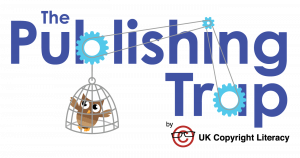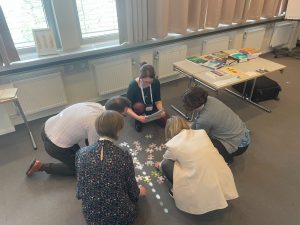Finding Data Management Tools for Your Research Discipline
By Rafael, on 14 February 2024
Guest post by Iona Preston, Research Data Support Officer, in celebration of International Love Data Week 2024.
While there are a lot of general resources to support good research data management practices – for example UCL’s Research Data Management webpages – you might sometimes be looking for something a bit more specific. It’s good practice to store your data in a research data repository that is subject specific, where other people in your research discipline are most likely to search for data. However, you might not know where to begin your search. You could be looking for discipline-specific metadata standards, so your data is more easily reusable by academic colleagues in your subject area. This is where subject-specific research data management resources become valuable. Here are some resources for specific subject areas and disciplines that you might find useful:
- The Research Data Management Toolkit for Life Sciences
This resource guides you through the entire process of managing research data, explaining which tools to use at each stage of the research data lifecycle. It includes sections on specific life science research areas, from plant sciences to rare disease data. These sections also cover research community-specific repositories and examples of metadata standards. - Visual arts data skills for researchers: Toolkits
This consists of two different tutorials covering an introduction to research data management in the visual arts and how to create an appropriate data management plan. - Consortium of European Social Science Data Archives
CESSDA brings together data archives from across Europe in a searchable catalogue. Their website includes various resources for social scientists to learn more about data management and sharing, along with an extensive training section and a Data Management Expert Guide to lead you through the data management process. - Research Data Alliance for Disciplines (various subject areas)
The Research Data Alliance is an international initiative to promote data sharing. They have a webpage with special interest groups in various academic research areas, including agriculture, biomedical sciences, chemistry, digital humanities, social science, and librarianship, with useful resource lists for each discipline. - RDA Metadata Standards Catalogue (all subject areas)
This directory helps you find a suitable metadata scheme to describe your data, organized by subject area, featuring specific schemes across a wide range of academic disciplines. - Re3Data (all subject areas)
When it comes to sharing data, we always recommend you check if there’s a subject specific repository first, as that’s the best place to share. If you don’t know where to start finding one, this is a great place to look with a convenient browse feature to explore available options within your discipline.
These are only some of the different discipline specific tools that are available. You can find more for your discipline on the Research Data Management webpages. If you need any help and advice on finding data management resources, please get in touch with the Research Data Management team on lib-researchsupport@ucl.ac.uk.
Get involved!
 The UCL Office for Open Science and Scholarship invites you to contribute to the open science and scholarship movement. Stay connected for updates, events, and opportunities. Follow us on X, formerly Twitter, and join our mailing list to be part of the conversation!
The UCL Office for Open Science and Scholarship invites you to contribute to the open science and scholarship movement. Stay connected for updates, events, and opportunities. Follow us on X, formerly Twitter, and join our mailing list to be part of the conversation!
 Close
Close






